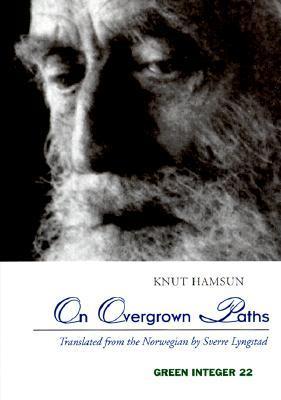What do you think?
Rate this book


241 pages, Paperback
First published January 1, 1949
"But that's not what I'm trying to fathom, but this: that so few things last. That even dynasties give way. That even what is grandiose falls someday. There is no pessimism in this thought or reflection, only a recognition of how non-stagnant, how dynamic life is. Everything is in motion, bubbling over with vitality, up and down and to all sides; when one thing collapses something else rises, looks large in the world for a moment and dies." (26-27)Having read all of Hamsun's works in English that I could get my hands on, I left On Overgrown Paths—his final work, written while he was on trial for treason—for last. There is not much more to life than is captured in this book. I need some time to sort out everything there is to say in response to it.
"Adolf HitlerHamsun didn't just write that obituary. He had it published it in a newspaper! OOPS.
I'm not worthy to speak up for Adolf Hitler, and to any sentimental rousing his life and deeds do not invite.
Hitler was a warrior, a warrior for humankind and a preacher of the gospel of justice for all nations. He was a reforming character of the highest order, and his historical fate was that he functioned in a time of [unequaled] brutality, which in the end failed him.
Thus may the ordinary Western European look at Adolf Hitler. And we, his close followers, bow our heads at his death."
"that so few things last. That even dynasties give way. That even what is grandiose falls some day. There is no pessimism in this thought or reflection, only a recognition of how non-stagnant, how dynamic life is. Everything is in motion, bubbling over with vitality, up and down and to all sides; when one thing collapses something else rises, looks large in the world for a moment and dies."All that may be true, but it isn't quite as true as he'd like it to be.
"In a hundred years it will all be forgotten. Then even this honorable court will be forgotten, totally forgotten. In a hundred years the names of all those present here today will have been obliterated from the face of the earth and be no more remembered, no more mentioned. Our fates will have been forgotten."Not you, Knut. You're not getting off that easily. The world doesn't frequently forget a Nazi, and as long as there are books, there will be people around to argue about yours.